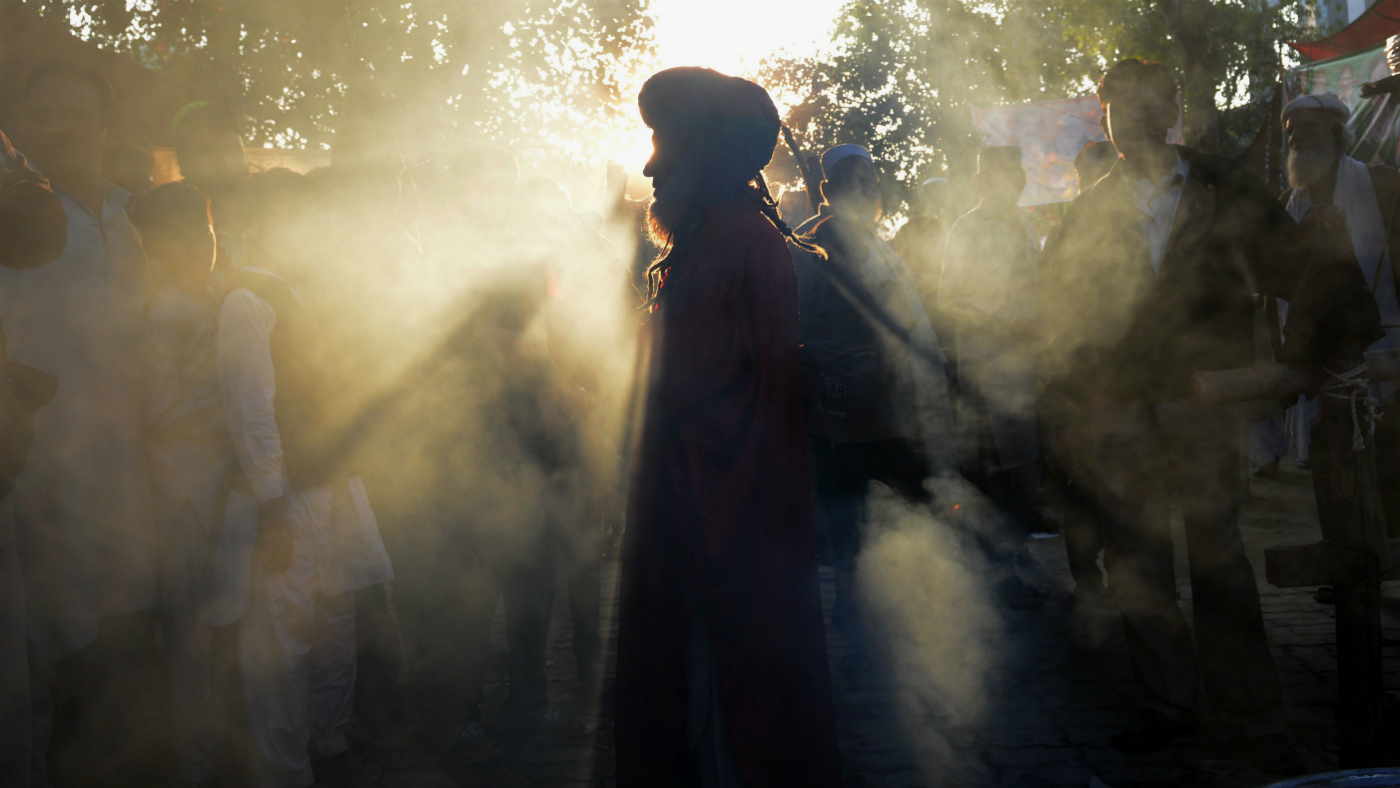Why is Islamic State targeting Sufi Muslims?
Last week's bombing of a mosque in Egypt was the latest in a series of attacks against the mystical Sufis

A free daily email with the biggest news stories of the day – and the best features from TheWeek.com
You are now subscribed
Your newsletter sign-up was successful
The death toll in last week’s terrorist attack on a mosque frequented by Sufi worshippers in Egypt’s northern Sinai region has risen to more than 300.
No group has yet claimed responsibility for Friday’s massacre, the deadliest in Egypt’s modern history, but the state news agency said the coordinated assault bore the hallmarks of an Islamic State attack. Egyptian officials later confirmed that militants were seen waving the black flag of IS.
This isn’t the first time the Sufi community has been targeted by Islamist extremists; a renowned Sufi cleric was kidnapped and beheaded by IS militants in the Sinai Peninsula last year.
The Week
Escape your echo chamber. Get the facts behind the news, plus analysis from multiple perspectives.

Sign up for The Week's Free Newsletters
From our morning news briefing to a weekly Good News Newsletter, get the best of The Week delivered directly to your inbox.
From our morning news briefing to a weekly Good News Newsletter, get the best of The Week delivered directly to your inbox.
After every attack of this nature, “observers are perplexed at how a group claiming to be Islamic could kill members of its own faith,” Rukmini Callimachi writes for The New York Times.
“But the voluminous writings published by IS and Qaeda media branches make clear that these fundamentalists do not consider Sufis to be Muslims at all,” she says.
Who are the Sufis?
Sufism is a mystical form of Islam that advocates peace, love and tolerance, and eschews materialism. The vast majority of its followers are Sunni Muslims, though it has some support among Shiites.
A free daily email with the biggest news stories of the day – and the best features from TheWeek.com
The movement “stands almost diametrically opposed to Salafism, the harsh - some would say puritanical - Sunni ideology that’s espoused by IS and Al Qaeda,” the Los Angeles Times reports.
Nihad Awad, executive director of the Council on American-Islamic Relations, argues that Sufism is not a sect of Islam, as is often reported, but rather a tradition within the faith.
“It is an extra-curricular way to seek more spirituality within Islam by focusing on the oneness of God and glorifying the prophet Mohammed,” Awad told USA Today.
Why are they being targeted?
Sufi Muslims have their own unique approach to worship which involves praying to saints and worshiping at their tombs. Singing and dancing also feature heavily in their religious rituals.
“Intolerant Islamist groups such as the Taliban and IS reject shrine worship as well as dancing and singing as un-Islamic,” Peter Gottschalk, Professor of Religion at Wesleyan University, writes for The Conversation. “In their view, prayers to Sufis are idolatrous.”
Some analysts also argue that Sufism is targeted by Islamic State because it is seen as a non-military threat to the group, Sky News reports.
The Sufis “are succeeding in drawing hundreds of youths from the terrorist organisation in a way the military hasn’t been able to do,” says Mohannad Sabry, a journalist and analyst who has worked extensively in the Sinai region.
“And I believe that the most important point, for Isis, is to eliminate their ideological rival rather than a military rival,” he added.
-
 The ‘ravenous’ demand for Cornish minerals
The ‘ravenous’ demand for Cornish mineralsUnder the Radar Growing need for critical minerals to power tech has intensified ‘appetite’ for lithium, which could be a ‘huge boon’ for local economy
-
 Why are election experts taking Trump’s midterm threats seriously?
Why are election experts taking Trump’s midterm threats seriously?IN THE SPOTLIGHT As the president muses about polling place deployments and a centralized electoral system aimed at one-party control, lawmakers are taking this administration at its word
-
 ‘Restaurateurs have become millionaires’
‘Restaurateurs have become millionaires’Instant Opinion Opinion, comment and editorials of the day
-
 Epstein files topple law CEO, roil UK government
Epstein files topple law CEO, roil UK governmentSpeed Read Peter Mandelson, Britain’s former ambassador to the US, is caught up in the scandal
-
 Iran and US prepare to meet after skirmishes
Iran and US prepare to meet after skirmishesSpeed Read The incident comes amid heightened tensions in the Middle East
-
 Israel retrieves final hostage’s body from Gaza
Israel retrieves final hostage’s body from GazaSpeed Read The 24-year-old police officer was killed during the initial Hamas attack
-
 China’s Xi targets top general in growing purge
China’s Xi targets top general in growing purgeSpeed Read Zhang Youxia is being investigated over ‘grave violations’ of the law
-
 Panama and Canada are negotiating over a crucial copper mine
Panama and Canada are negotiating over a crucial copper mineIn the Spotlight Panama is set to make a final decision on the mine this summer
-
 Why Greenland’s natural resources are nearly impossible to mine
Why Greenland’s natural resources are nearly impossible to mineThe Explainer The country’s natural landscape makes the task extremely difficult
-
 Iran cuts internet as protests escalate
Iran cuts internet as protests escalateSpeed Reada Government buildings across the country have been set on fire
-
 US nabs ‘shadow’ tanker claimed by Russia
US nabs ‘shadow’ tanker claimed by RussiaSpeed Read The ship was one of two vessels seized by the US military